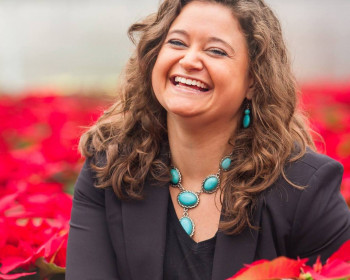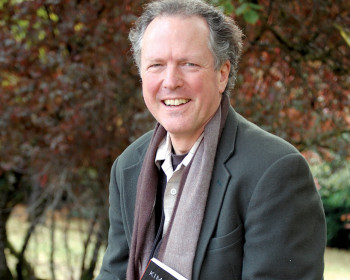Welcome Jacqueline Roebuck Sakho
We are pleased to welcome Jacqueline Roebuck Sakho, EdD, Assistant Professor in Educational Leadership and Director of the Preliminary Administrator License program.
Open gallery

We are pleased to welcome Jacqueline Roebuck Sakho, EdD, Assistant Professor in Educational Leadership and Director of the Preliminary Administrator License program.
What prior experience do you bring to this new position?
Dr. Roebuck Sakho comes to Lewis & Clark College from Duquesne University, Pittsburgh, PA, where she completed her doctorate in Educational Leadership with a social justice focus, followed by a two-year post-doctoral fellowship. Her post-doc experience at Duquesne University was informed by implications from her dissertation, Toward a Community-centric Approach to Disparate Discipline Practices. Dr. Roebuck Sakho is establishing Community-centered Educational Leadership as a type of leadership preparation and practice designed to combat interlocking systemic and structural inequities like disparate discipline practices. She has published on her work in the Handbook of Urban Educational Leadership (2015) and the Carnegie Project for the Educational Doctorate White Paper Series (2016).
In short, I bring a critical analytical approach that is informed by intentionally living in the margins, liminal spaces and standing in the gaps as acts of activism and resistance or, Black Activist Mothering. This way of both living and modeling intersectional analysis adds rigor and authenticity to how I teach and learn about inequitable issues and practices in PreK-20. I engage this work through the lens of disparate discipline practice. A national phenomenon that is indeed insidious and a grave demonstration of interlocking systemic, structural and historical mechanisms that deliver injustice and inequity. Through the lens of disparate discipline, I am learning how leadership preparation can be enhanced to include what I name as Community-centered Educational Leadership. A form of leadership preparation and development where candidates are prepared to center community knowledge to create critical networks to improve complex problems of practice in schools. I pull from the following methodologies to design and teach this work: critical race methodologies, culturally responsive restorative justice and Black feminist intersectional analysis.
How do you see yourself contributing to the work and mission of your department and the Graduate School as a whole?
Moving forward at Lewis & Clark, Dr. Roebuck Sakho intends to utilize the foundational social justice platform of the Graduate School’s vision and mission to explore how school leaders, community leaders, and higher education can be authentic networked partnerships to improve interlocking systemic and structural problems of practice in schools. Further, Dr. Roebuck Sakho plans to enhance Educational Leadership by troubling how diverse voices and perspectives are unearthed and utilized to inform the design of administrative preparation programmatically and instructionally.
What drew you to the Lewis & Clark Graduate School of Education and Counseling (GSEC)?
I am on a mission to usher in a cacophony of voices from Black women as mothers who are engaged in community work. This work serves the GSEC mission by making visible their voices as legitimate perspectives and knowledge producers to inform higher education. One dope way this work is happening is through my appointment as a Schouver Fellow. Through the Schouver Fellowship, I have created a hub team designed to create other teams of Black women as mothers engaged in community work to improve problems of practice unfolding in their context. I am presenting this work at the 2017 Annual University Council of Educational Administration (UCEA) conference on November 17, 2017, in Denver CO. In early 2018, I will be participating in the California State University, East Bay, Department of Educational Leadership Speaker Series speaking about restorative justice in public schools to their candidates for the administrative services credential. Also on the horizon, I just finalized the proof of Black Activist Mothering: Teach Me About What Teaches You, a chapter in the Special Issue of the Western Journal for Black Studies, a peer-reviewed journal due out in 2018.
How do you foresee this position challenging you professionally?
My role as Director of the Preliminary Licensure Program will create a fertile space to challenge me as an equity leader. This role will require me to stretch my scholarship and discover new resources for researching and learning about Administrator preparation. Also, having the opportunity to build upon a program already functioning well and meeting high standards will be delightfully challenging.
What do you find especially unique about the graduate school and/or what do you see as its greatest asset?
The greatest assets of the GSEC is its ability to be self-reflective as an organization. Meaning, I understand the GSEC is turning the equity lens internally with the purpose of learning how to address inequitable issues of diversity within higher education writ large.
Graduate Communications is located in room 205 of Rogers Hall on the Graduate Campus.
voice 503-768-6054
fax 503-768-6053
Graduate Communications
Lewis & Clark
615 S. Palatine Hill Road
Portland OR 97219

